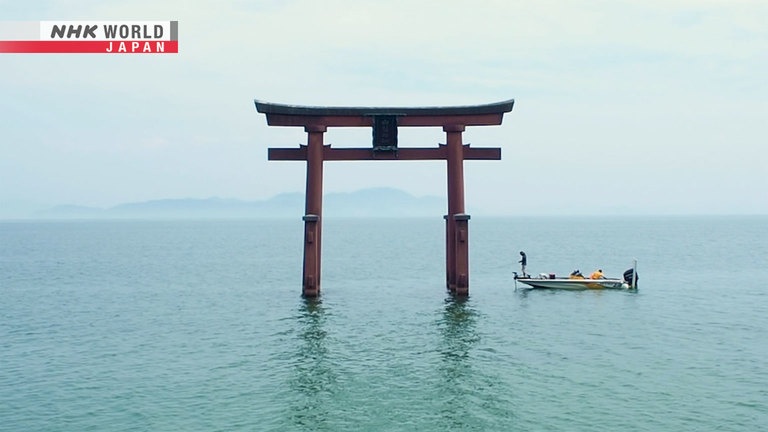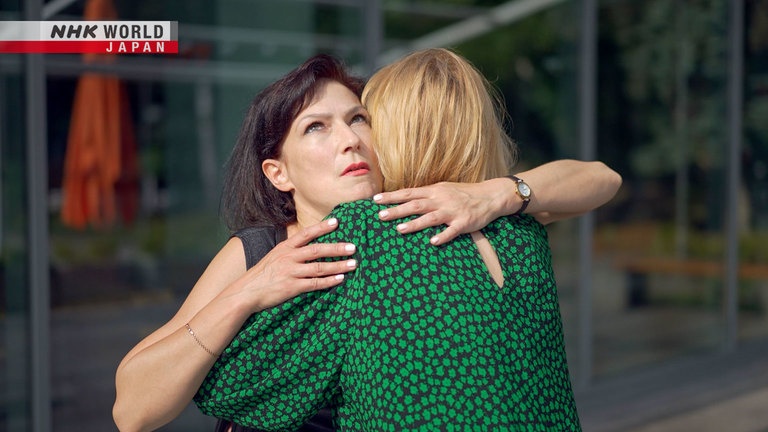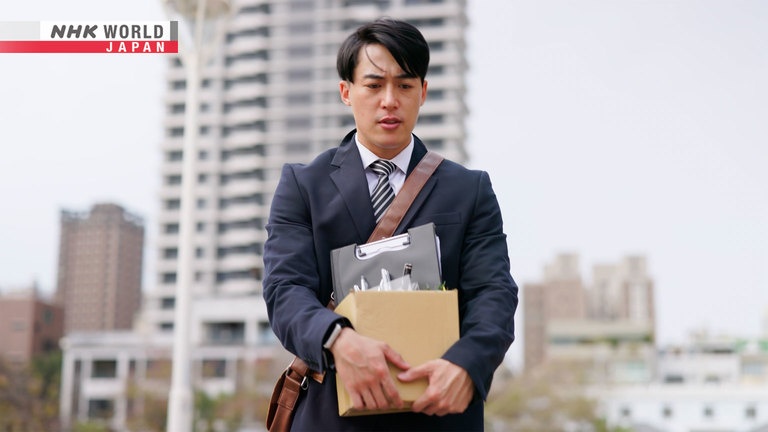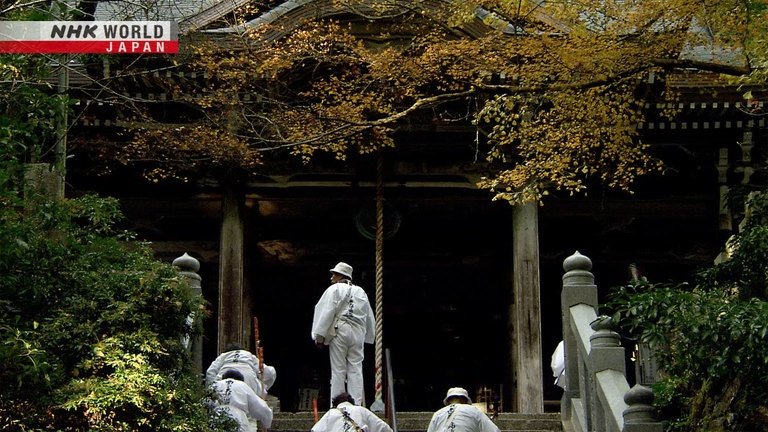Eight
The Japanese language is rich in words and expressions influenced by nature, history and culture. This episode focuses on words related to hachi, or the number eight. Numbers have special meanings in many places around the world. In Japan, eight is a particularly important number with a variety of meanings and associations. From his home in Kyoto Prefecture, poet and literary translator Peter MacMillan guides us through unique everyday expressions related to the number eight.




Transcript
"Yukigesho."
"Karakurenai."
The Japanese language is rich in unique expressions that reflect nature and culture.
Magical Japanese.
Today's theme is "hachi," or the number eight.
Hello. I'm Peter MacMillan.
Numbers have special meanings in many places around the world.
In the West, for example, seven is considered a special number, because the Bible says that God created the world in seven days.
In Japan, eight is a very special number, with a great variety of meanings and associations.
Let's start by looking at some expressions where "eight" is used to mean "a lot."
"yaoyorozu no kami."
In ancient Japanese, "ya" is the word for "eight."
However, in this expression, "yaoyorozu" means "an infinite number of."
"Yaoyorozu no kami" refers to the multitudes of "kami," or divine spirits, in Shinto, the ancient Japanese religion.
Since mythological times, the Japanese have believed that gods and spirits inhabit all the phenomena and things around them,
from the sun to the moon, the wind, and even the toilets in their homes.
People have traditionally referred to this great pantheon as "yaoyorozu no kami."
"yaoyorozu no kami."
Here's a word that's closely associated with daily life:
"yaoya."
The first "ya" is "eight," and the second means "store."
Records from the 17th century, during the Edo period, describe "yaoya" as a place offering all sorts of foods, like a modern-day supermarket.
Today, the word is used casually to refer to a greengrocer.
The "yaoya," greengrocer, around the corner, always has good deals.
"yaoya."
From "yaoya" comes another word:
"yaocho."
This refers to a fixed match.
It's said to have been inspired by a man named Chobei, who ran a "yaoya."
He was very good at playing the ancient strategic board game GO, but would always let others win so they could save face.
He was an unbeatable champion, but lost so easily.
Could the game have been a "yaocho," fixed match?
"yaocho."
Another reading for "ya" is "hachi."
The kanji looks like this.
Incidentally, people say this character looks like a fan spread wide open, which is considered a good luck omen in Japan.
It certainly does look like a fan, don't you think?
Let's look at some expressions that use "hachi."
"happo bijin."
"Happo" combines "hachi" with "ho," meaning "direction."
It literally means "the eight directions."
But the word is used figuratively to mean all directions.
"Bijin" is a beautiful person.
"Happo bijin" once meant a person with impeccable looks, who could be admired from all directions.
But now it is used for someone who tries to be agreeable to everyone.
Be careful with this one, because "happo bijin" is not considered a compliment these days.
At first I thought she wanted to be my friend.
But it turns out she's just a "happo bijin," people pleaser.
"happo bijin."
Here's a word that's often used in business:
"happo fusagari."
"Fusagari" means blocked.
"Happo fusagari" describes a situation where you're blocked on all sides; in other words: there's no way out.
The materials haven't arrived, our client is angry about the delay, and instead of helping me, my boss is angry at me, too.
It's a "happo fusagari," no-win, situation.
"happo fusagari."
The number eight is also considered special in Buddhism.
The story goes that, when the Buddha died, there were eight nations in the surrounding region.
His disciples divided his ashes into eight parts, to be brought to the kings of each nation.
This allowed the teachings of the Buddha to be spread around the world.
With its long history as a Buddhist nation, Japan has many traditions related to the number eight.
"Shikoku hachiju-hakkasho meguri."
Shikoku Island, in western Japan, is home to 88 major Buddhist temples, collectively called "hachiju-hakkasho."
"Meguri" means a pilgrimage.
Traditionally, it was believed that making a pilgrimage to all of these temples was a way for humans to overcome their earthly desires.
Even today, Shikoku welcomes large numbers of pilgrims each year.
Here's another word related to Buddhism:
"hachimen roppi."
"Hachimen" means eight faces, and "roppi" means six arms.
The word originated from a demigod with many faces and arms.
Today, the word is used to describe someone who is exceptionally capable,
and single-handedly accomplishes the work of many people in a variety of areas.
He's at the top in sales, develops new products, and also takes good care of the younger team members.
He's a "hachimen roppi," all-round, success.
"hachimen roppi."
Now, another well-known expression with interesting roots:
"ichi ka bachi ka."
"Ichi" is the number one, and "bachi" is another reading for "hachi."
A direct translation of the phrase would be "one or eight."
The phrase is said to have come from gambling, where you bet on two completely different numbers.
Today it's widely used when someone takes a chance.
This will be a tough negotiation,
but I'll give it a try, "ichi ka bachi ka," sink or swim.
"ichi ka bachi ka."
Oh, all this talking is making me hungry.
Please excuse me for just a moment.
"oyatsu."
The word "yatsu" comes from "yatsudoki," which means "the eighth hour."
In olden times, people in Japan divided the day into twelve parts.
"Yatsudoki" would fall at around 2 to 4 pm by today's clocks.
It was common back then to have just two meals a day, and "yatsudoki" was the time for a snack.
Today, the word "oyatsu" refers to a snack eaten at any time of day.
Peter never forgets to have an "oyatsu," snack, at three.
"oyatsu."
What did you think of the program?
From ancient myths to tasty snacks,
I hope you enjoyed this little journey through the culture and expressions related to the number eight.
See you next time. Bye.